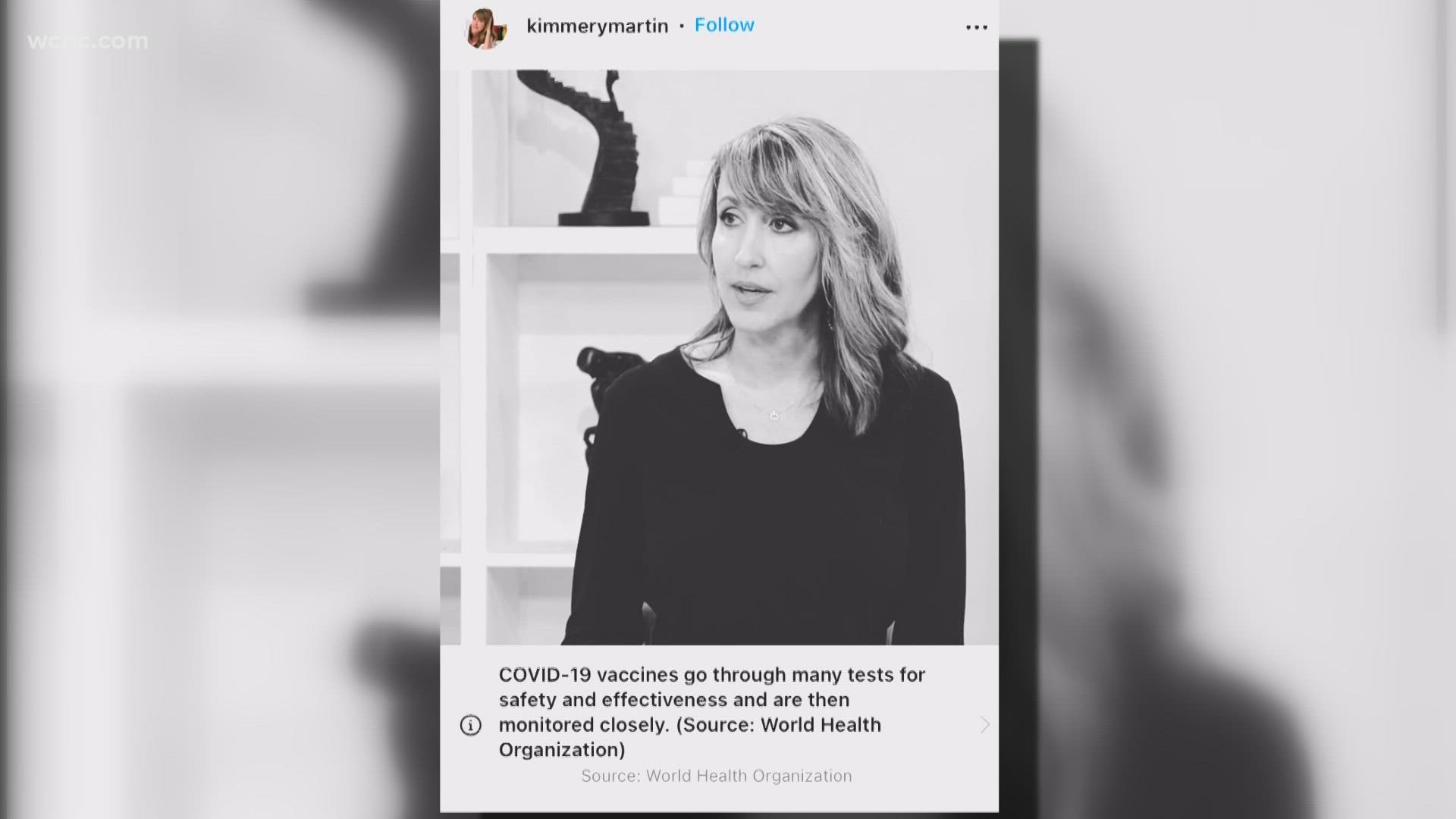CHARLOTTE, N.C. — Kimmery Martin is a Charlotte author who's now written three books. Her most recent title is "Doctors and Friends," and it follows a group of doctors tackling a pandemic of their own.
Martin wrote the book before the onset of the coronavirus took hold of the world, but it was published on Nov. 9, 2021. And unbeknownst to her at the time that she wrote the book, a very real pandemic would soon affect her directly.
She tested positive for COVID-19 during the summer of 2020, early on in the pandemic. Martin is now part of a group of what doctors colloquially refer to as "long haulers" who still face the effects of the virus even nearly two years after their initial infection.
She recently took to Instagram to describe what she faced at first, and what she's dealing with now.
"I felt super achy, muscles achy, hurt to get out of bed, I had a sore throat," Martin said as part of a caption paired to a photo on her Instagram page.
It isn't just aches and pains in her list of symptoms, which also includes a distorted sense of smell, exhaustion, and fluctuating heart rate and blood pressure.
Dr. John Baratta is the founder and co-director of the UNC COVID Recovery Clinic. He admits the long game with COVID-19 is still being figured out.
"There isn't a clear understanding in the medical community of exactly what causes long COVID and why some people would get long COVID and others wouldn't," he said.
But the answers may be pinned down soon. A recent study from the Mayo Clinic suggests that part of the reason is that women have a stronger immune response compared to men. Doctors say women have it easier to fight the initial infection. However, over time, researchers say some women's immune systems show heightened levels of a certain cell which also causes inflammation and could lead to ongoing issues and a slow recovery.
Contact Jane Monreal at jmonreal@wcnc.com and follow him on Facebook, Twitter and Instagram.

